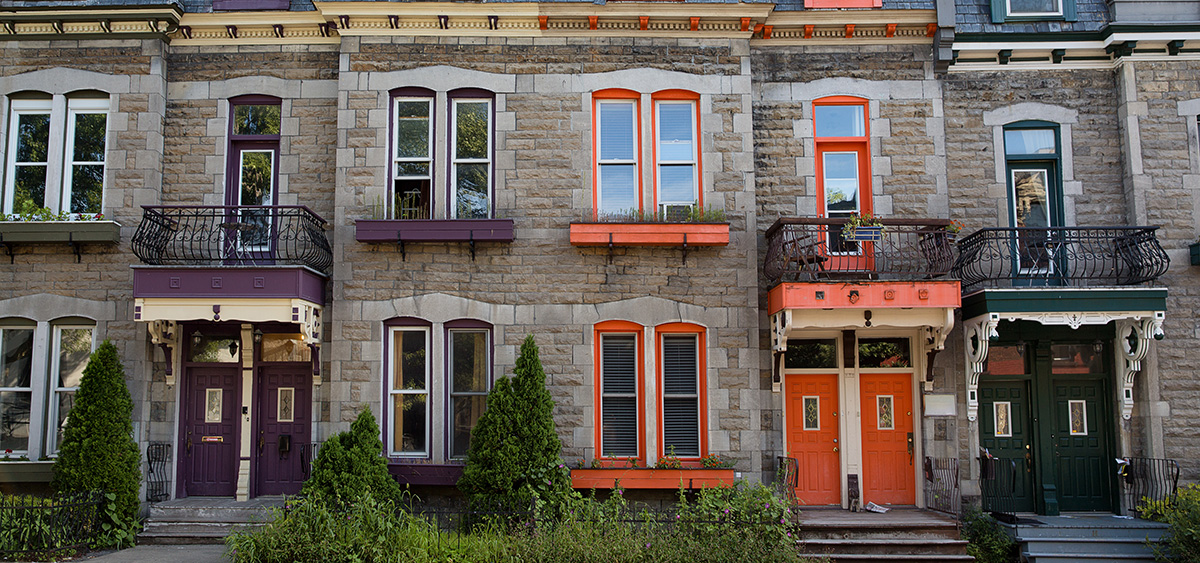A landlord who rents out an apartment must respect a certain number of obligations regarding the initial condition of the apartment, maintenance, repairs, etc. In exchange, the tenant also has certain responsibilities.

Main Responsibilities of Landlords
Landlords have these responsibilities towards tenants:
- provide a rental unit that is clean and in good liveable condition
- provide the tenant with peaceful enjoyment (without being disturbed unreasonably by other tenants)
- guarantee that the unit can be used for the purpose for which it was rented, and maintain that purpose for the entire length of the lease
- make all necessary repairs, except for minor maintenance repairs
- not change the form of the unit or the use for which it was intended, for example, turning a residential building into a commercial one
1. The rental unit must be clean and in good liveable condition.
“Delivering” the unit means to let the tenant take possession. It is a basic responsibility of a landlord.
On the agreed-upon date, the landlord must make the unit available to the tenant, with all the accessories and services that the tenant is entitled to. For example, if you agreed that the tenant could take possession on June 20, then on that date, you must be able to give the keys to the tenant so that she can move in.
This responsibility also includes giving the tenant the unit in a good state of repair. The unit must be clean and in livable condition. Landlords must make whatever repairs are necessary, at their expense, before the tenant moves in.
2. Provide the tenant with peaceful enjoyment.
This means that the landlord must not disturb the tenant during the lease. The landlord must also ensure that other tenants in the building do not disturb the tenant.
If some other tenant causes the new tenant damage, the landlord could be held responsible, on condition that the tenant first advised the landlord of the problem, preferably in writing to avoid any misunderstanding.
If the landlord does nothing to fix the situation, the tenant could apply to the Tribunal administratif du logement (TAL, formerly Régie du logement or rental board) to get a reduction in rent, cancellation of the lease or compensation (money).
However, if the disturbance or inconvenience is caused by someone outside the landlord’s control, the landlord has no obligation to compensate the tenant. Examples of this might be neighbours in the building next door, a city inspector or the letter carrier. However, in some cases, the tenant can still get a reduction in rent or cancellation of the lease.
3. Guarantee that the unit can be used for the purpose for which it was rented.
This means that the landlord must allow the tenant to use the unit for the purpose it was rented. It also means that the landlord cannot change that purpose during the lease.
The duty to ensure that the unit can be used for the purposes for which it was rented could be reduced if the tenant does not inform the landlord that the unit has deteriorated so much that it can no longer be used for the purpose it was rented.
4. Make all necessary repairs.
During the lease, the landlord must make all necessary repairs to the unit. On the other hand, the tenant is responsible for making minor maintenance repairs.
If the landlord puts off doing the work, the tenant can ask the TAL for permission to do them herself and for an order that the landlord must reimburse the tenant for the cost.
If the TAL gives its authorization, it will set the conditions for doing the work and set an amount for the job. The tenant can subtract this amount from the rent.
But the tenant does not have to apply to the TAL for permission to do the work if
- the repair is urgent and must be done as quickly as possible,
- the tenant has notified the landlord or tried to notify the landlord, and
- despite being notified, the landlord has done nothing.
The tenant has a right to be reimbursed for reasonable expenses and, if necessary, can deduct those expenses from the rent. The tenant should make sure to keep the receipts for the work done.
5. Don’t change the form of the unit or the use for which it was intended.
Neither the landlord nor the tenant can change the form or use of a dwelling.
The responsibility to not change the form of the unit means that you not change the physical form of the unit, for example, by changing the lay-out of the apartment.
The responsibility not to change the use for which the unit was intended means not to transform the unit into something other than a rental unit. For example, you can’t transform an apartment building into a commercial one.
If this rule is not respected, the remedy is to apply to the TAL and ask it to order the landlord or tenant to keep the unit in the state in which it was rented and to not change its form or use.





